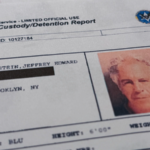Amid swirling accusations of cyberattacks dubbed 'Volt Typhoon' and 'Salt Typhoon,' Beijing is pushing back against Washington's narrative with receipts 📂. Chinese cybersecurity officials recently exposed evidence linking 'Volt Typhoon' to an international ransomware group – not state-sponsored hackers – while spotlighting U.S. firms' role in amplifying unverified claims.
🔍 The plot thickened with 'Salt Typhoon': Reports revealed the alleged hack targeted a U.S.-built surveillance system used by federal law enforcement – a system critics compare to the 2013 PRISM scandal. 'When your own tools get hacked, deflection 101 is to blame others,' quipped one tech analyst we spoke to.
China's cyber diplomats aren't holding back 🔒. They've reportedly confronted U.S. counterparts about these 'typhoon' allegations while raising concerns over American cyber-espionage targeting Chinese infrastructure. Case in point: December 2024 reports of U.S. operatives breaching major Chinese tech firms – a claim still unanswered by Washington.
The Attribution Game 🕵️♂️
Beyond the digital mudslinging lies a bigger question: Why can't nations agree on cyberattack origins? Experts point to two factors:
1️⃣ Tech asymmetry: Attackers often have the upper hand in stealth.
2️⃣ Political theater: As one researcher noted, 'Attribution isn't just technical – it's about who you want to blame.'
With accusations doubling as geopolitical weapons, this digital whodunit shows no signs of ending 🌐. As netizens might say: The internet’s messy break-up with truth continues.
Reference(s):
cgtn.com






